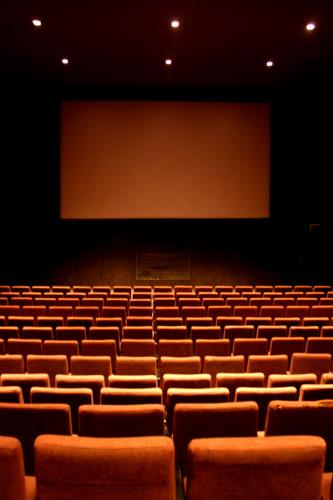Recipient of Macao Literary Prize and Macao Novel Prize, Joe Tang is a writer and cultural commentator, and has published novels, including The Floating City, Assassin, and The Lost Spirit. The latter two titles were translated into English and Portuguese. Joe’s portfolio also includes commentaries on art and plays. They include Words from Thoughts, Philosopher’s Stone, Journey to the West, Rock Lion, Magical Monkey and The Empress and the Legendary Heroes.

Recently, a major event made headline news in Macao’s arts scene: after a few years of preparation and piloting, Cinematheque‧Passion has finally launched. This governmental initiative, supported by Macao Cultural Affairs Bureau and run by Cut Ltd., took on an innovative concept, offering film-lovers and intellectuals a fascinating entertainment space. Comprising a 60-seat boutique cinema, a small media archive of film documentaries, film books and magazines, a basement area (where the box office is located, a venue for hosting small exhibitions during film premieres), and a small courtyard downstairs. Time will tell as to whether and how this small film museum can be leveraged to become an exciting, creative venue for arts programmes and activities.
The global video sharing platform, YouTube, has recently launched its paid service, YouTube TV, a service that integrates various paid TV channels on one single platform for continuous streaming. Even in the initial period, it provides over 40 direct channels, covering news, TV episodes, lifestyle, entertainment, sports and children’s programmes. Viewers can watch these contents via smart mobile devices, computers or even from the TV. For those pressed with time, they can save the programmes on their cloud storage drives for viewing afterwards. Such technological breakthroughs in media networks have deeply changed our everyday lives and, needless to say, our entertainment consumption patterns. Activities that we have taken for granted — such as watching movies in cinemas or viewing TV programmes from the comfort of our own homes — are likely to undergo more changes in the near future.
Imagine what it would be like when you return home from work one day, and catch sight of a pop-up message on your TV screen that reads: “An HD version of blockbuster Avatar 3 is ready for immediate download viewing for just MOP$10.” So your living room has suddenly turned into a cinema. Or say you are longing to watch a certain movie produced some time ago, which is not available in cinemas (due to limited screening schedules). You can’t buy or rent a DVD copy either. All you need to do is to access a certain video sharing website from your handset or tablet or even your TV at home, in order to retrieve and download (for free or for a small fee) the film you want from an archive of thousands of films onto your device. At this moment, you will realise that a cinema can happen anywhere.
Indeed, it is not unlikely that in the future, the traditional form of “cinema” will disappear. On one hand, the cinema will become accessible to everyone, or indeed it will be a next-door institution. On the other, it will become a part of social media and entertainment. Whether you are going to a big shopping mall to enjoy a 3D or 4D film at IMAX, or choose to enjoy a quality film and spend a leisurely afternoon with friends in a more cultural institution such as Cinematheque‧Passion, the idea of “film” will change and become more closely knit with our everyday lives.
Soon, the act of entering a cinema to watch a film may become a deliberate privilege for a small, niche and upscale market, just like the way bookshops are no longer places for selling books. Consider for a moment that a cinema will no longer be a place for film screening, but a lifestyle space for private enjoyment as well as sharing, for artistic exchange and appreciation. It will transform from a singular hardware infrastructure into a lifestyle software. The significance of Cinematheque‧Passion lies in that it offers a way to test out these new ideas. Not only will it serve as a hub for film-lovers, it will help us understand more about future trends, and show us possibilities how films can become more seamlessly integrated into our everyday lives.